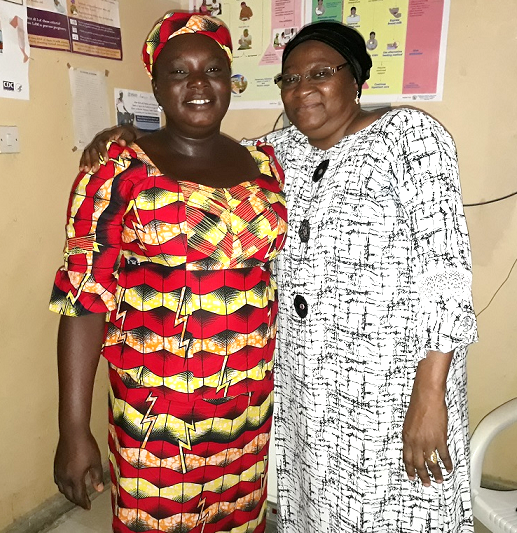
Rosaline Makolo, 35, is the mother of six children – four girls and two boys. And although her last child was born nine years ago, she knows she could become pregnant again.
She and her husband, Samson, live in Ganaja, a poor neighborhood in Lokoja, in central Nigeria, where Rosaline works as a hospital attendant and her husband as a police corporal. Both felt desperate for a permanent family planning (FP) solution, knowing another child would be added financial strain.
“I have been struggling for 9 years now,” she said in reference to her failed attempts to obtain a permanent contraceptive method and living with the risk of another pregnancy.
Working at a hospital, she knew about such methods, but could not find a facility near her where the services were readily available or affordable. Tubal ligation under general anesthesia – a permanent contraceptive procedure for women – costs up to $320 USD, an amount far above what Rosaline and Samson could afford.
Over the years, she had tried various contraception methods – from pills to injectables, and even an intrauterine contraceptive device – but none suited her due to various side effects. As a result, Rosaline was like many women of reproductive age in Nigeria, where contraceptive use is incredibly low: only 15% of women aged 15-49 use any type of method to limit and space their births.
Thankfully, Rosaline’s hope for an effective and permanent FP method was rekindled when her neighbor, a nurse, told her about a new, simple, modern FP method: the minilaparotomy under local anesthesia. The nurse – one of the first in Kogi State trained by MCSP to be part of a minilaparotomy surgical team – explained that the procedure is safe, performed under local anesthesia, and permanently cuts (or ligates) the fallopian tubes. All for the cost of $16 USD! For the first time, Rosaline glimpsed an end to her fear of an unwanted pregnancy.
Initially, the procedure cost much more. But thanks to the efforts of MCSP staff – who asked the clinical teams to add up the costs of needed supplies, then advocated for hospital administrators to revise the fee – the price was reduced significantly. Ultimately, this will contribute to access and sustainability of the service.
In addition to its affordability, the minilaparotomy can be done by a doctor at a primary health center as it requires only basic equipment and skills, local anesthesia, and a minimal incision. Moreover, the procedure requires no blood donation or hospital stay – differentiating it from a tubal ligation under general anesthesia, which the hospital had performed before, usually linked with a caesarian section. Recognizing these advantages, MCSP collaborated with the Kogi State Ministry of Health to introduce the procedure, building the capacity of an initial 20 frontline health care workers (five teams of doctors and nurses) from four selected facilities in Nigeria’s first minilaparotomy under local anesthesia training.
The first step for Rosaline and Samson was a counseling session with MCSP-trained FP counselors to ensure their decision to proceed with minilaparotomy at Kogi State Specialist Hospital was well informed and voluntary. For the hospital, it was a milestone operation – the first minilaparotomy performed under local anesthesia – and the start of offering a new, much needed service for women in Kogi State who want to limit their births using a permanent FP method.
For Rosaline, who was discharged five hours after the operation, having the procedure means peace of mind. “I thank the doctors and nurses for making my wish come true,” she said. “I am so happy and relieved that I will not get pregnant again. I will encourage my friends who do not want to have more children to come and have it done here.” At least one of Rosaline’s friends has since had the procedure done.
Presently, 4% of Nigerian women want to limit their births, but their needs are largely going unmet. MCSP is helping to bring minilaparotomy – a proven, cost effective FP solution – to women like Rosaline, who need it to protect the health and financial future of their entire family.
